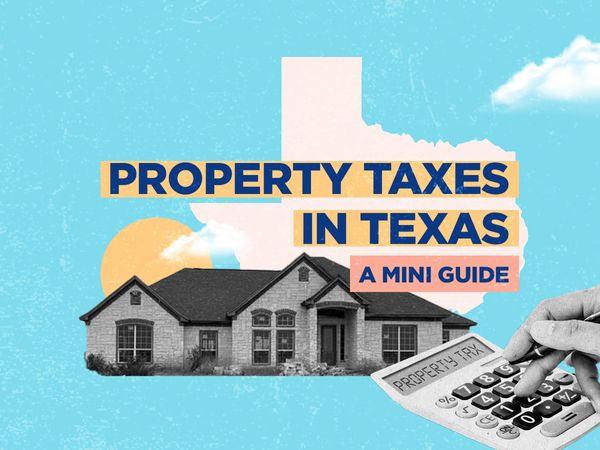Owning a home in the United States is a dream for many. However, there are certain realities of homeownership that people frequently overlook, including the financial obligation of property taxes. Understanding the details behind this annual cost of owning property is critical for those who want to keep a close eye on their budget.
Laws regarding property taxes vary between individual states, and property taxes in Texas are more unusual than most. In this article, we'll explore the nuances of Texas property taxes and provide valuable tips on how to save money each year as a Texas homeowner.
What are Property Taxes?
Property taxes are a component of the taxes you owe each year based on the value of the property or properties you own. Importantly, the collection of property taxes represents a significant source of funding for local governments. The tax collected is used to pay for schools, local emergency services, street and road services, and many other essential aspects of a smooth-functioning community that people often overlook.
As a property owner, you are responsible for paying your property taxes to a local tax collector, who then distributes the funds to those entities that are responsible for your area, such as a county or city. There are also certain tax exemptions available that can lower your property tax burden depending on the specific policies of your state or tax-determining unit, such as a school district or county.
Now, while no one likes to pay taxes, they are a critical part of keeping American towns, cities, states, and the entire country up and running. Every state has its own tax system. Some states eliminate income tax altogether, but boost property tax rates to compensate. Other states may choose to set high income and sales tax rates, but keep the property tax rate low, perhaps to increase the appeal of homeownership and residency in the state.
Overview of Property Taxes in Texas
Property taxes, although popular, are a bit of a pain point in Texas as the state's average property tax rate is one of the highest in the country at 1.80%. Fortunately, there is no state income tax or vehicle property taxes to pay in Texas, and as is true in so many states, the tax structure balances out.
While Texas residents understand the importance of property taxes and the benefits they represent to their communities, no one wants to pay more than their fair share.
A tax assessor appointed by your local government will provide an appraisal value, from which your property tax total is calculated. There are some basic rules that govern a property tax assessment in Texas, laid out in the state Constitution:
- Taxation must be equal and uniform across all equivalent properties
- The property tax must be based on the property's current market value
- All local governments must use the same appraised value for the same property
- All property is subject to a tax unless in the case of a specific exemption
- Texas homeowners must be given reasonable notice of any increases to their property's appraised value.
The county in which you reside determines the property tax rate each year, but your property value assessment is determined by a number of other factors including:
- Recent sales of similar properties in your area/county
- Recent appraisals of your property
- Necessary repairs, or damage from natural disasters.
Local governments provide information on how to appeal a property tax assessment in the paperwork that arrives with your annual property tax bill.
What is the Property Tax Policy in Texas?
The property tax system in Texas is quite simple, and you can calculate your expected property taxes with ease. You simply need to determine the appraised value of your home and multiply that by your county's effective tax rate. You can also check it using this property tax calculator.
There are also six different property tax exemptions available in Texas:
- The General Homestead exemption
- Age 65 or older/disabled exemption
- Military veterans exemption
- Temporary exemption for disaster damage
- Uninhabitable residence exemption and
- Manufactured/cooperative housing exemption.
Understanding whether you qualify for these exemptions and how to apply for them is critical for saving money on your overall payment of property tax in Texas.
A Final Word
Navigating the world of property taxes in Texas doesn't have to be a source of annual stress. Understanding your rights, including your ability to appeal what you feel is an inaccurate or unfair assessment of your property's value, is essential for any homeowner, regardless of what state you call home.
Professional tax assistance services, like the elite team at Bezit, are invaluable resources for information on property taxes and direct guidance on the appeals process, ensuring that you keep more of your hard-earned money in your pocket every year.

